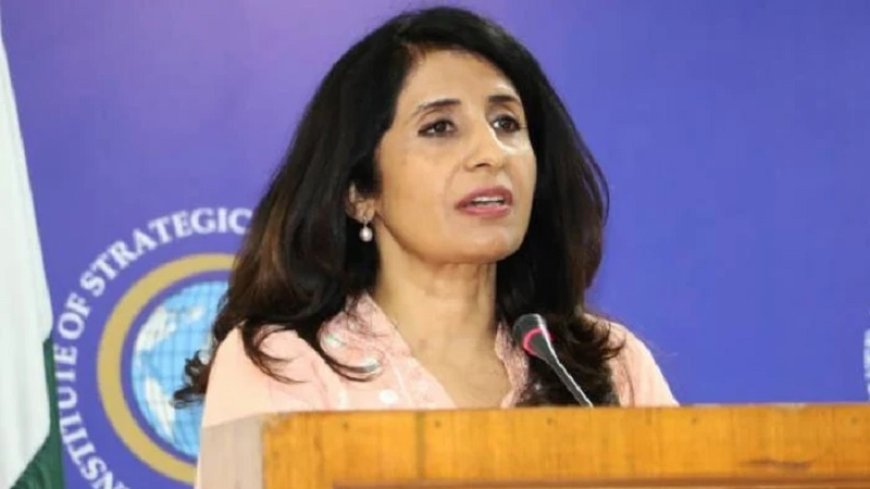Pakistan and opposed the US report on terrorism
Expressing its displeasure over the US State Department's annual report on terrorism, Pakistan has seen Washington's claims against Islamabad as a distortion of reality.

Zahra Mumtaz Baloch, the spokesperson of the Ministry of Foreign Affairs of Pakistan has expressed her regret that the country's role in the fight against terrorism and preventing the financing of terrorists was ignored. After the US attack on Afghanistan, George Bush, who was the President of the United States at the time, announced Pakistan as Washington's non-NATO partner, but after a while, the United States accused Pakistan of being unfaithful in cooperating with Washington in the so-called struggle. against terrorism. On that basis, the honeymoon between the United States and Pakistan came to an end. After that, it began to be haunted by many suspicions from the political and military officials of the United States. Morteza Haider, an expert in political affairs, says in relation to the matter: "The United States expected Pakistan to fully comply with Washington's requests, especially due to providing the country with military and financial aid. This is in a situation where it seems that Pakistan is implementing its foreign policy in Afghanistan in the frame of its national interest, which is not at all pleasing to Washington. Pakistan's leaders say that Islamabad has a full understanding and understanding of its responsibilities as an independent country with full authority and that the claims made against it in the annual report of the United States on terrorism are against it because they have no meaning or basis. The differences between Pakistan and the United States worsened during the presidency of Donald Trump, when this politician openly accused Pakistan of supporting terrorism and cut off his country's financial and military aid to the government of Islamabad. It seems that, during the administration of President Joe Biden, not only has there been no change in the relationship between Washington and Islamabad, but the relationship has become more bitter. It is not far-fetched that the events of the past two and a half years in Afghanistan have become an obstacle to improving relations between Pakistan and the United States. Especially taking into consideration that, the United States was expecting that, Pakistan by properly managing the events of Afghanistan, especially the Taliban, would help implement the policies of the White House in Afghanistan. Ahmad Mansour Khan, an expert in political affairs, says in relation to this that: In cooperation with the United States, the government of Pakistan expects to see Washington helping to guarantee Islamabad's national interests, including the issue of Kashmir; but the action of the United States to choose India, which is Pakistan's rival, means that Islamabad and Washington have strategic errors in various issues, including the issue of Kashmir and events in Afghanistan. Taliban militants Alaa kulli haal, according to the leaders of Pakistan is that, in its report, the United States has not indicated at all the contribution of Pakistan in dismantling international terrorist networks. This is in a situation where more than 80,000 soldiers of the security forces and civilians of Pakistan have been killed in the war against terrorism and Islamabad has suffered a loss of hundreds of billions of dollars. It seems that there have been differences between the United States and Pakistan regarding the definition, meaning and model of terrorism. In this, Pakistan accuses the United States of implementing destructive policies in Afghanistan, to the extent that Islamabad has repeatedly expressed its concern about the situation in Afghanistan and its dangerous consequences for other countries in the region. Pakistan says that the irresponsible withdrawal of American and NATO troops in Afghanistan has led to increased violence and chaos in the country. Differences between Pakistan and the United States have flared up while events in Afghanistan also appear to be out of Islamabad's control, which is seen as unacceptable by Washington. In that context, it is not far-fetched to see the United States increasing its pressure against Pakistan.













































